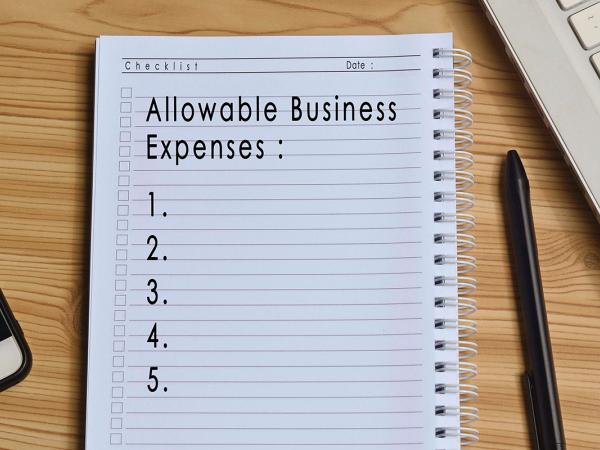Keeping business records in the digital age
As it’s a new tax year, some sole traders, partnerships or landlords may be tempted to throw away last tax year’s receipts. Business records can include documents such as bank statements, sales invoices and expense receipts. However, there is a legal requirement to keep these records to support the entries on your tax return for a certain period of time.
This article looks at what business records look like in this digital age and explains how long you need to keep these records for. It also includes some tips to help you with your record keeping.

Content on this page:
Business records
During a tax year, businesses will produce and receive information which they will use to prepare their accounts and tax return. The business records required will vary depending on the business size and sector. We explain about types of business records on our webpage, Business record keeping.
Over time more business records have been sent or received in a paperless format. For example:
- Internet banking has reduced the use of cheques and paying-in books. Many banks are no longer sending paper bank statements.
- Some businesses send their sales invoices by email instead of posting a printed copy.
- Many businesses order stock and supplies online and receive an email receipt rather than a physical receipt.
- Some businesses may pay for supplies using a payment app such as PayPal or using funds retained in online digital platforms and do not receive a paper record of the transaction.
- Also, your business may not own a printer, or you are trying to reduce printing for environmental and/or cost reasons.
Previously, many small businesses would keep their bank statements and receipts in a folder or a ‘safe place’ during the accounting period. This meant the business owner had everything to hand when they came to prepare their accounts and tax return.
The changes explained above can mean there are fewer physical paper records available. However, you still need to make sure you don’t forget to include all your business income and expenses. Below are some ideas which may help you:
- Having a separate business email address. This can be used to send sales invoices and make business purchases.
- If you use your personal email address – keep a separate email folder to save any business transactions.
- Download (on a computer) or screen-shot (on a mobile phone) bank or credit card statements which show business payments and receipts.
- If you buy something online, you usually receive an email confirmation of your purchase as the receipt. If you don’t then you can take screen-shots of purchases made through digital platforms or apps on your mobile phone especially if you pay using a different payment app. These screen shots can be saved in a separate photo album on your mobile.
Also, it may be the case that someone else orders on behalf of your business, for example because they get free delivery. It is important that you make sure you ask for and keep any emails relating to the order, so you don’t forget to include the expense on your tax return.
Using your business records
Documents such as bank statements, emails and receipts are known as primary records. Some individuals will use their primary records to create summary information of their business income and expenses. This might be done by using a cash book or digitally by creating a spreadsheet or using record-keeping software.
This summary information can then be used to prepare your accounts and complete your self assessment tax return.
Future changes to keeping business records
HMRC’s new Making Tax Digital for Income Tax programme is being phased in from April 2026, initially for certain sole traders and landlords as explained on our Making Tax Digital for income tax page. One of its key requirements is that business records must be maintained in a digital format such as a spreadsheet or HMRC approved software. We look at some of the practical things to bear in mind when considering digital record keeping in our guidance on digital records and software.
The Making Tax Digital for VAT regime already requires all VAT registered businesses (unless they are exempt) to keep digital records and submit VAT returns electronically. For more information on MTD for VAT see our page, Reporting and paying VAT.
Time limits
Usually, you must keep all records relating to your business for five years following the 31 January filing deadline. So, for the 2023/24 tax return - the online filing deadline is 31 January 2025, and business records must be kept until 31 January 2030.
For more details see our website guidance on How long to keep business records for.
- If you change your email address you will need to make sure you can access or have copies of any relevant emails.
- If you change your bank account or credit card provider, then you should make sure you still have a record of any business transactions either by printing out or downloading statements (which ideally should also be backed up).
- If an online account is closed with a digital platform you may no longer be able to access your sales or purchase information. It is a good idea to download it on a regular basis.
Remember you must keep all your records for the appropriate time limit even if you stop being a landlord or cease your self-employment. It’s a good idea to store your records in a safe place and back up any digital copies.



